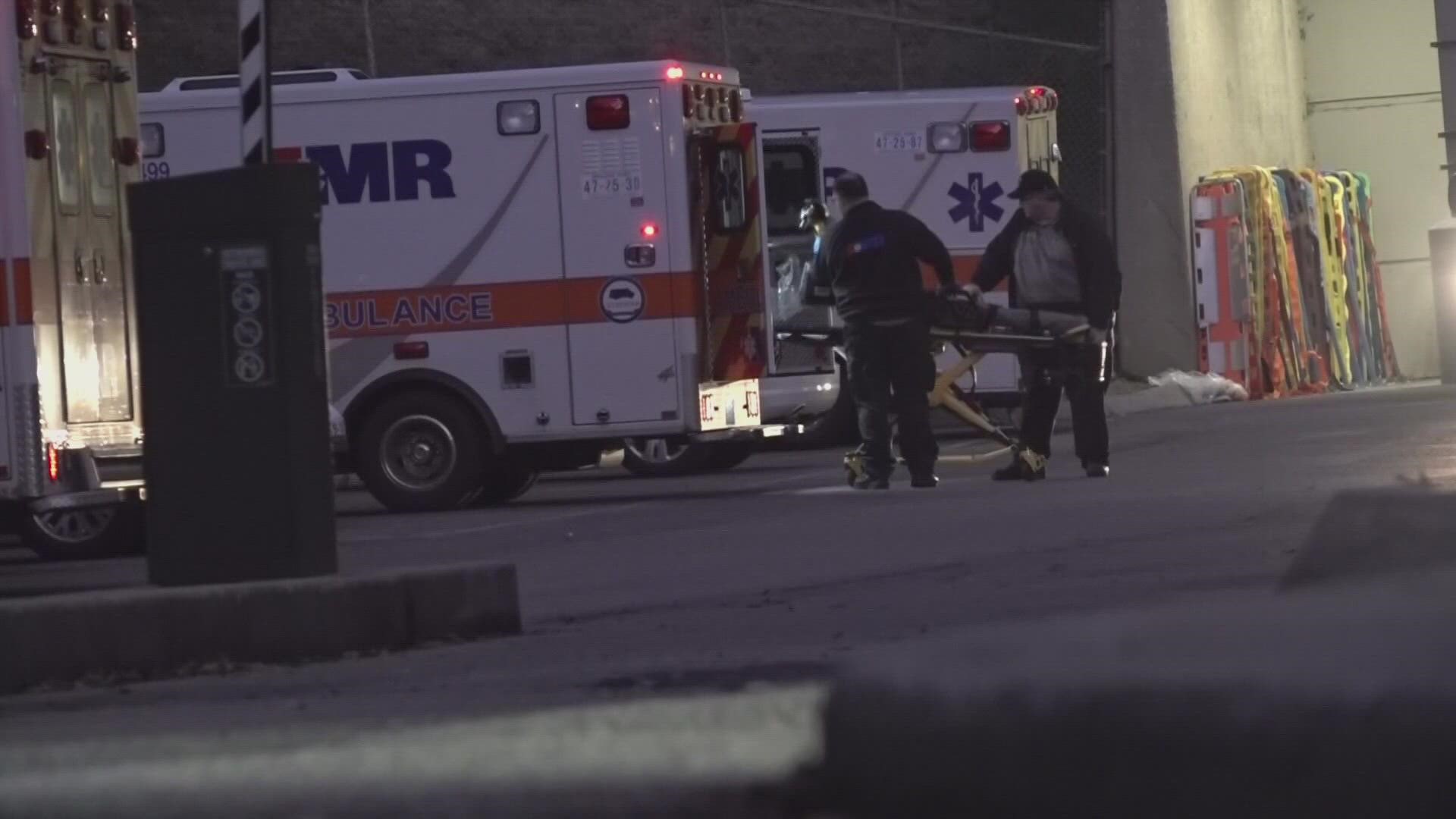KNOX COUNTY, Tenn. — Knox County Mayor Glenn Jacobs is asking commissioners to approve a measure to allow the current county contract with American Medical Response to expire in order to rework ambulance response priorities.
The County Commission will discuss the mayor's plan when it meets for a work session on September 19.
If approved, the county would not renew its current agreement with AMR, which is set to expire on June 30, 2023. This does not necessarily mean AMR would stop serving the county as its primary ambulance service provider -- only that the current agreement, as written, would end.
The county said it is trying to rework the ambulance response agreement with new, updated priorities.
"This agreement was originally executed in January 2013. Since then, significant changes in health care, particularly in the field of emergency medical transport, have occurred," said Kelsey Wilson, director of communications for the Knox County Health Department.
In a letter to commissioners on Sept. 1, AMR said it gave "total support" to the mayor's decision and said it expects to continue serving Knox County if the contract is reworked -- assuming it wins the bid on the new contract.
"Rest assured, we will continue to provide excellent service to the people of Knox County in the interim. And we expect to compete and win the RFP to continue that service," AMR said.
AMR said Knox County's move is similar to one Blount County made earlier in 2022. Blount County ended its old agreement with AMR and created a new one that shifted priorities away from on-time performance and put more focus on patient care.
"The current contract, like so many around the nation, was written for another era. It is based on people calling 911 for emergencies. It has evolved into primary care," AMR said. "Obviously, true emergencies need to be treated as they are now, but many calls need to be evaluated on need and outcome, not on a 10-minute clock."
Officials in Knox County said the COVID-19 pandemic overwhelmed already-taxed first responders and the healthcare system at large. The Knoxville Fire Department said it receives about 65% of emergency medical calls daily. What adds to the problem is that some people call 911 for things as small as a toothache.
Prior to the pandemic in 2019, AMR said its resources were being jammed up due to more calls from outside the county and crews being stuck on long waits outside the ER. AMR said at the time it was frustrated because part of the issue was how much contractual emphasis was put on rapid response to calls across the board, which it said prevented it from using its resources appropriately.
AMR said at the time its Advance Life Support (ALS) ambulances, which had limited numbers, were being used for lower priority patients. During a particularly busy flu season in 2019, the county agreed to temporarily alter the 2013 ambulance agreement to keep ALS ambulances on the most severe calls and allow Basic Life Support (BLS) ambulances to respond to less severe calls.
Per the current contract, the Knox County Health Department is supposed to fine AMR if a paramedic team does not arrive at a call within 10 minutes. Prior to the pandemic, AMR said it had been seeing an average of $10,000 to $20,000 in fines monthly. During the height of the pandemic -- those monthly fines would sometimes be well into a six-digit figure.
"When this contract was first written, an ambulance would arrive at the hospital, turn over the patient, do some paperwork, clean the unit and be back in service in 30 minutes. Now our units spend more than 110 hours a day waiting outside the ER for the facility to have room to see the patient," AMR said. "Their staff problems worsen ours. That is not pointing a finger at the hospitals, we all work together, and it is a shared problem. We’re just the only piece of the system that gets fined."
Knox County voted in March to relieve nearly $900,000 in fines from AMR after the COVID-19 omicron surge, saying the delays were due to a domino effect of the virus' squeeze on the healthcare system.

